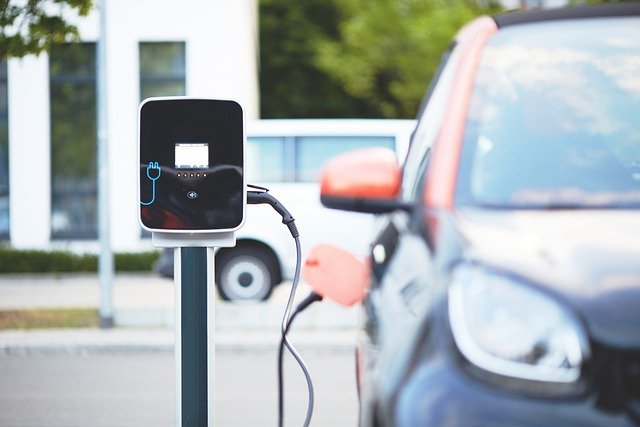Portable EV Chargers: Essential Travel Companions for Electric Vehicles
A portable electric vehicle charger offers on-the-go convenience, letting you power up your EV wherever you are. Compact, easy to use, and compatible with various models, it’s a smart backup solution for road trips, daily commutes, or emergencies when charging stations are scarce.

What Makes a Portable EV Charger Essential for Modern Drivers?
A portable EV charger serves as your personal charging station, allowing you to power your electric vehicle from virtually any standard electrical outlet. These compact devices bridge the gap between public charging infrastructure and your daily driving needs. Unlike fixed home chargers, portable units travel with you, transforming any accessible power source into a viable charging solution.
Most portable EV chargers connect to standard 120V household outlets, though many models also support 240V connections for faster charging speeds. The convenience factor cannot be overstated – imagine arriving at a vacation rental, friend’s house, or workplace and simply plugging in rather than hunting for public charging stations.
How Fast-Charging Portable EV Devices Transform Your Driving Experience
Fast-charging portable EV devices represent the evolution of mobile charging technology. These advanced units maximize charging efficiency while maintaining portability, typically offering Level 2 charging capabilities that can add 25-40 miles of range per hour of charging time.
The key advantage lies in their intelligent charging management systems. Modern fast-charging portable devices automatically adjust power delivery based on your vehicle’s requirements and the available electrical supply. This smart technology prevents overcharging, manages temperature control, and ensures optimal battery health during the charging process.
Safety features distinguish quality fast-charging devices from basic alternatives. Look for units equipped with ground fault circuit interrupters, temperature monitoring, and surge protection. These safeguards protect both your vehicle and the electrical system you’re connecting to.
Why Travel-Friendly Electric Vehicle Chargers Are Game-Changers
Travel-friendly electric vehicle chargers prioritize portability without sacrificing functionality. These units typically weigh between 15-25 pounds and include carrying cases or handles for easy transport. The best travel-friendly models feature detachable cables, compact designs, and weather-resistant construction.
Versatility defines excellent travel chargers. Many units offer multiple plug configurations, allowing connection to RV outlets, dryer outlets, and standard household receptacles. This adaptability ensures you can charge in campgrounds, hotels, parking garages, and residential locations where public charging stations might be unavailable.
Storage convenience matters for frequent travelers. Quality travel-friendly chargers include organized cable management, protective cases, and compact form factors that fit easily in your trunk without consuming excessive cargo space.
| Product | Provider | Charging Speed | Price Range |
|---|---|---|---|
| Tesla Mobile Connector | Tesla | Up to 32 miles/hour | $200-$300 |
| JuiceBox 32 Portable | Enel X | Up to 25 miles/hour | $400-$500 |
| ClipperCreek LCS-25P | ClipperCreek | Up to 20 miles/hour | $500-$600 |
| Grizzl-E Portable | Grizzl-E | Up to 40 miles/hour | $350-$450 |
Prices, rates, or cost estimates mentioned in this article are based on the latest available information but may change over time. Independent research is advised before making financial decisions.
Understanding Charging Speed and Compatibility Requirements
Charging speed depends on multiple factors including your vehicle’s onboard charger capacity, the electrical supply amperage, and the portable charger’s maximum output. Most electric vehicles can accept between 3.3kW and 11kW of AC charging power, directly impacting how quickly your battery replenishes.
Compatibility extends beyond simple plug connections. Different EV manufacturers use various charging protocols and communication standards. Universal portable chargers typically support J1772 connections, which work with most non-Tesla vehicles. Tesla owners need specific adapters or Tesla-compatible charging equipment.
Amperage ratings determine charging speed more than voltage alone. A 32-amp portable charger on a 240V outlet delivers significantly faster charging than a 12-amp unit on the same circuit. Understanding your electrical supply limitations helps set realistic charging time expectations.
Installation and Safety Considerations for Portable Charging
Proper installation practices ensure safe, efficient charging regardless of location. Always verify that the electrical outlet can handle your charger’s amperage requirements. Most portable EV chargers include built-in testing features that check ground fault protection and outlet wiring before beginning the charging cycle.
Circuit capacity matters significantly. A 20-amp circuit should only support a 16-amp continuous load, following the 80% rule for electrical safety. Overloading circuits can trip breakers, damage wiring, or create fire hazards. When in doubt, consult local electricians familiar with EV charging requirements.
Weather protection becomes crucial for outdoor charging scenarios. Even weather-resistant chargers benefit from covered locations during precipitation. Proper cable routing prevents trip hazards and protects charging equipment from damage.
Portable EV chargers represent essential tools for modern electric vehicle ownership, providing flexibility, convenience, and peace of mind for drivers who refuse to be limited by charging infrastructure gaps. Whether you choose a basic travel unit or an advanced fast-charging system, having portable charging capability transforms your EV from a locally-constrained vehicle into a truly versatile transportation solution. The investment in quality portable charging equipment pays dividends through expanded travel opportunities and reduced range anxiety.




